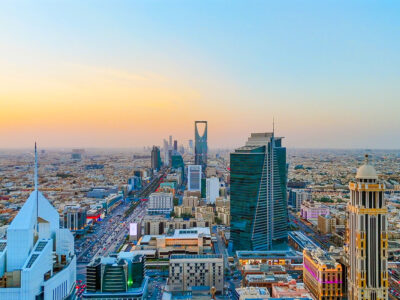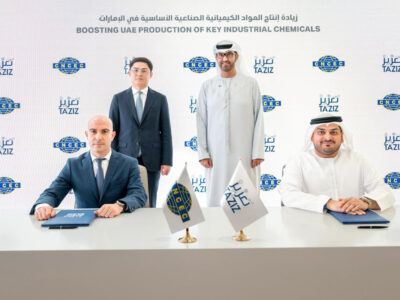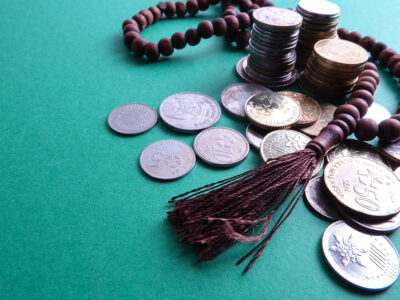Bahrain was for decades regarded as the financial centre of the Middle East, but it was hard hit during the recession and is arguably still picking up the pieces.
The Gulf state expects to run a budget deficit of more than $3.8bn this year and has proposed a string of policy reforms, including axing millions of dollars of food, fuel and other subsidies, to help it rebalance the books.
Despite this, its leaders claim Bahrain has “passed the stress test” of the past years’ fiscal woes and is bouncing back as a financial hub.
The number of finance institutions in Bahrain has grown steadily over the years to around 400 (from 190 in 1991) and work has recommenced on the $1.3bn Bahrain Financial Harbour scheme, which houses the country’s stock exchange and high-profile tenants such as Gulf Finance House and BNP Paribas.
However, as Bahrain emerges from turbulent times, it is looking beyond conventional banking in an attempt to ensure sustainable growth. The country is now taking decisive steps to become an international centre for Islamic finance.
In September it became the first country in the GCC to launch a dedicated Islamic index, and two weeks ago announced plans to establish a central Sharia board of scholars to oversee the growth of Islamic finance in the kingdom.
In December, the country will host the annual World Bank Conference on Islamic Banking and Finance, and Bahraini officials are helping international governments, including the UK, to devise the regulatory framework needed to support the sector.
According to Central Bank of Bahrain (CBB), there are 89 conventional banks in Bahrain and 24 Islamic banks — making 113 in total with assets of $189.1bn as of July 2015. Islamic banks accounted for $25.1bn that month, 12 percent of the total, but this is forecast to grow over the next decade, according to CBB’s executive director Abdul Rahman Al Baker.
“The growth in Islamic banking is very impressive here in Bahrain — you are talking about annual growth rates of around 15-20 percent,” Al Baker tells Arabian Business in an interview in Manama.
Major Bahraini projects being financed by Islamic banks include Durrat Al Bahrain, by Kuwait Finance House, Diyar Al Muharraq, also by Kuwait Finance House, and the Financial Harbour, which is being financed by GFH.
The global Islamic finance industry has also seen substantial growth in the past decade, of around 10-12 percent each year, according to the World Bank. It claims the total value of Sharia-compliant financial assets today is around $2bn, covering bank and non-bank financial institutions, capital markets, money markets and insurance, or ‘takaful’.
PwC predicts the Islamic finance industry will more than double to $2.6 trillion by 2017, with the Middle East, North Africa and Asia accounting for a large part of that growth. In many majority-Muslim countries, adds the World Bank, Islamic banking assets have been growing 50 percent faster than conventional banking assets. The sector accounts for over 25 percent of banking in the Gulf, but there has also been a surge in interest from non-Muslim countries such as the UK and Hong Kong — particularly as those countries position themselves to attract Middle Eastern investment into infrastructure and real estate.
“The growth of Islamic finance is due to an increasing appetite among clients and investors to tap these types of ‘ethical’ products,” says Al Baker. “In Bahrain and elsewhere in the world, Islamic finance is playing an increasing role in offering different products to the market, such as sukuk or Islamic REITs [real estate investment trusts] — all of which are starting to make a big difference to the economy by securing funding for vital sectors such as health, tourism and aviation.”
Its advocates claim Islamic financing offers a less risky investment than traditional products, particularly when it comes to financing large investments. For example, sukuk — Islamic bonds structured without interest rates as fixed-income, interest-bearing bonds are not permissible under Sharia law — typically involve a tangible asset in the investment, such as partial ownership of a property.
Similarly, a murabaha is a non interest-bearing loan, which in practice is a little like paying rent, where the intermediary retains ownership of an asset until the loan is paid in full.
Al Baker cites official estimates suggesting infrastructure schemes across the GCC require a total of $900bn of investment. This is a big opportunity, he says, and many of the foreign banks setting up in Bahrain today are looking to provide a mix of conventional and Islamic bonds to finance such projects.
He notes a “healthy” level of consolidation is taking place in Bahrain, whether it is between conventional and Islamic banks or just Islamic. Recent mergers include that of Islamic retail lender Al Salam Bank Bahrain (ASBB) with conventional retail bank BMI Bank in February 2014, and the consolidation of Elaf Bank, Capinvest and Capital Management House to become Ibdar Bank in December 2013.
“Consolidations of Islamic banks started to happen a few years ago and we are ending up with bigger, stronger institutions with higher capital and the ability to do more business, which is great,” he says.
“Certainly, in future, the Islamic banking landscape could comprise a smaller number of bigger banks. For us, it’s not about growing in number; the most important thing is that we look at how they will be able to add value, grow in assets, business and other areas.”
An important part of the strategy is the Bahrain Islamic Index, a trading tool to measure changes in values of Sharia-compliant securities listed on the Bahrain Bourse.
Opening the index on September 14, Bahrain Bourse CEO Sheikh Khalifa Bin Ebrahim Al Khalifa said the index will be computed from the prices of 17 stocks, all of which comply with regulations set by the bourse’s Sharia committee.
Al Baker comments: “It’s interesting to see Bahrain taking the lead in this and I think other regional exchanges will follow. Once you’ve distinguished the companies into certain platforms — Sharia-complaint or conventional — the public can see what’s on the index.
“That will attract a flow of new investors to the market and encourage more Sharia-compliant institutions to list.”
There are 17 companies on the Bahrain Islamic Index and it launched with a base value of 908.626 points. It was reported that a specialised committee will periodically review the companies’ information to make decisions on whether or not to continue including them.
For comparison, the Bahrain Bourse lists 46 companies with a total $22bn of equities and $5.5bn of fixed income. Foreign companies account for $3bn of the total. Speaking to Arabian Business, Sheikh Khalifa says: “Bahrain is already an international leader in finance; the confidence is there, and that gives us a strong platform to develop Islamic finance products for capital markets.
“The launch of our Islamic index in September is a call for most of the upcoming services we want to launch, and I see the sector as having significant growth potential.”
An Islamic index is crucial, he says, because the market is growing and it is often difficult for investors to see quickly which companies meet their Sharia requirements. Bahrain has also implemented new rules to enable investors to directly own a sukuk — in other jurisdictions, especially regionally, “you only get beneficiary ownership of fixed-income instruments, which means nothing for the investor who wants to record an asset in his books, or have a pledge on it as collateral,” Sheikh Khalifa says.
Bahrain’s Islamic index is the first in the GCC, and Al Khalifa reveals there was initial scepticism among investors. “We wanted to focus on market breadth, not just equities, to bring in more segments and products. But there was initial resistance because of fear — new banks were not ready to have the platform.
“That has changed. People know that rather than picking up the phones and making a deal, there is a platform that has a bidder’s price and makes it easier for them to trade.”
The emergence of REITs present an opportunity for both the Bahrain Bourse and Bahrain Islamic Index, and Al Khalifa points to the proposed listing of Eskan Bank’s REIT, which comprises two income-generating and unleveraged properties — Segaya Plaza and Danaat Al Madina — currently owned by Bahrain Property Musharaka Trust. The Sharia-compliant REIT is expected to list later this year with a total value of BD20m ($53m).
Al Khalifa says his next task is to work with international issuers to list Sharia-compliant exchange traded funds (ETFs) as tracker funds alongside the index.
On the ground, Islamic banking experts say the sector is constantly evolving and broadening in scope. Tariq Kazim is deputy general manager, support services group at Al Baraka Bank, the Bahrain subsidiary of Al Baraka Banking Group, which operates in 15 markets across the Middle East, Africa and Asia, has a total of $2bn of assets under management and recorded $3m in net profits for Bahrain in the first half of 2015. He tells Arabian Business: “Islamic banking will always see bigger growth than conventional banking because more and more people are converting to it, there is more financing available and the product offer is maturing.”
Sukuk issues offer particularly high growth potential, he says, revealing that the value of Al Baraka’s sukuk portfolio has almost doubled in the last two years to $200m — mainly comprising sovereign issues. He thinks that “a few years from now, all the major transactions and product offerings available through Islamic should be similar to conventional banking with minor variations”.
There is still some difference of opinion among Sharia scholars. Cash financing has generally not been provided by Islamic banks because the concept of borrowing without collateral and charging interest is generally viewed as running counter to Sharia principles. But Kazim says: “Most try and get away from it but some are OK with it.”
He even claims some banks are studying ways of offering credit cards, which have been viewed as controversial by the majority of Islamic banks. Al Baraka does not offer credit cards at present. “With all our products we have had a lot of dispute over what type of transactions are allowed, the technicalities of those, what kind of financing it is — short or long term — default terms and fees,” Kazim says.
“The credit card is under study and we are trying to find the best model to implement it and present that to our Sharia board for approval.”
CBB, as the main regulator, has sought to smooth out such differences of opinion. In November it announced plans to establish a centralised Sharia board of scholars to oversee the Islamic finance sector in Bahrain and make decisions on the Sharia compliance of new products. CBB itself has a Sharia board — as do most Islamic banks, but their scope has been limited to vetting their own products. The new board, on the other hand, will have the power to make overarching decisions, and any Islamic financial institution that issues a fatwa for a new product in Bahrain will first have to seek its approval.
Meanwhile, Bahrain continues to share its expertise across the world in a bid to cement its reputation as a leader in Islamic finance. For the past three years it has been advising the Bank of England on issues related to Sukuk and other Sharia-compliant instruments.
“We respect the ways the authorities wish to tap this market and are helping them devise the regulations needed to supervise Islamic banking,” says CBB’s Al Baker. “The sector needs rules on capital liquidity, investment structures, product technicalities — all of those things need to be in place.”
One of the main reasons Bahrain became a centre for finance in the first place was its relaxed corporate legislation when compared to elsewhere in the Gulf. It is also, according to a report by KPMG last year, one of the cheapest places to do business in the region. With continued drive and focus, Islamic finance could be one sector that helps Bahrain get back on its feet again.








